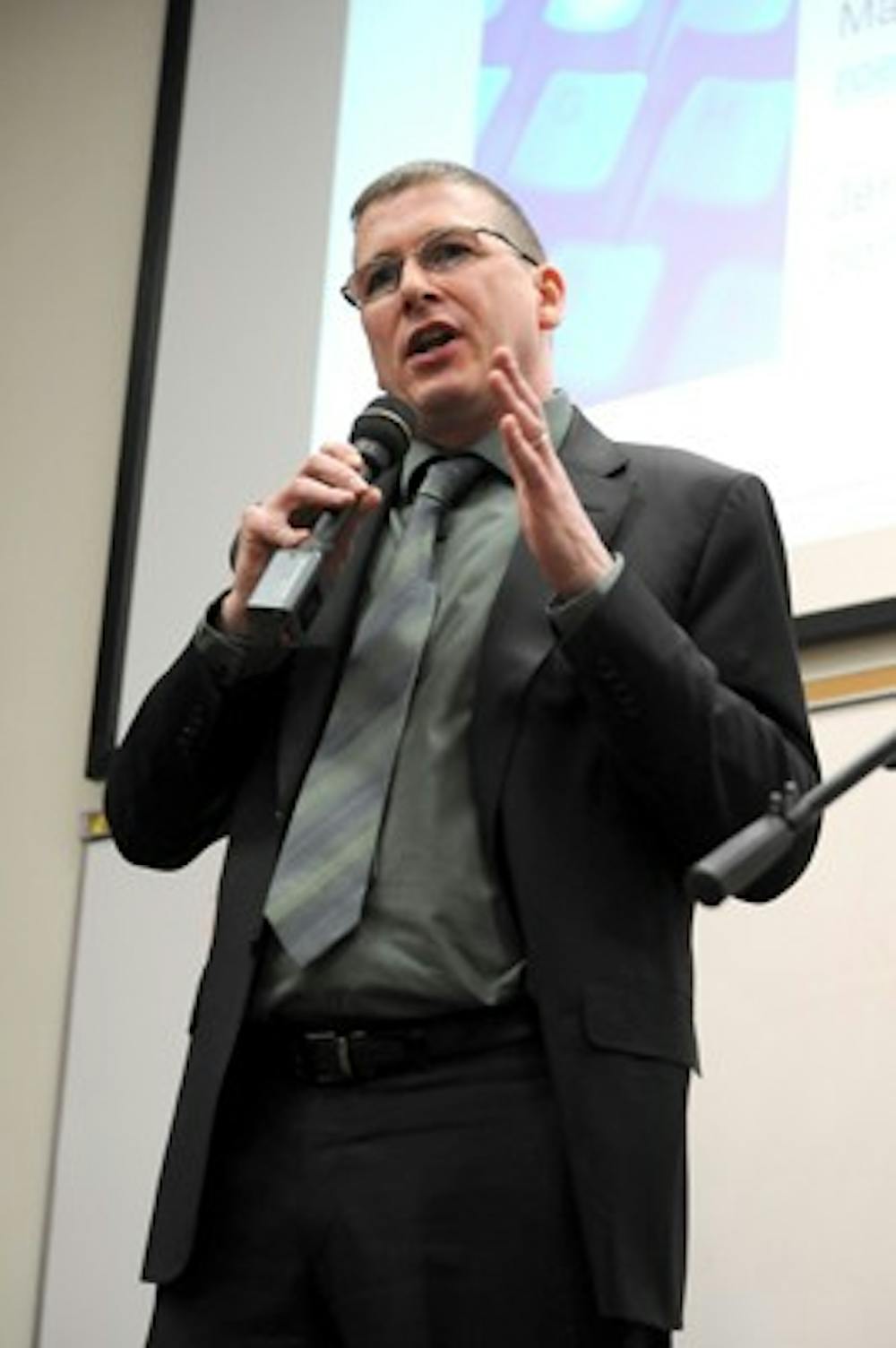A-Senate at impasse on master course syllabi changes

Academic Senate's discussions on proposed changes to the university's long-standing master course syllabi documents have come to a standstill.
The discussions have proceeded throughout three consecutive meetings, the first of which was a heated argument between those for and against the change. Members of the Time-Limited Taskforce on Curricular Process proposed the changes to the master course syllabi documents during the Feb. 4 meeting.
“Some departments have thousands of master course syllabi they have to review and update,” said George Ronan, director of General Education and chairman of the Certificates and Degrees (CAD) Review Committee. “We recommend a master course description.”
The master course description entails 26 different elements, including bulletin descriptions, pre-requisites, student learning objectives and a course format.
“The goal is for each curriculum committee to go back and figure out what they need to do,” Ronan said. “They can include more material than just this, but they don’t have to. We want it to reflect what they think they should be doing.”
Some senators believe they will be losing valuable information that could help faculty design their courses.
Senator Jim Hill, a political science professor, said he believes there are important factors the master course description would be missing compared to the existing master course syllabi.
"The text books are important," he said. "I don't think they're a problem. I think they're a plus. It seems to me we should put back in the course assignment sheet."
Other senators believe there are issues with both the master course description and master course syllabi.
"(A member of my department) is concerned because the University Curricular Committee never sends back corrected syllabi," said senator Jim Scott, a business faculty member. "(Changing to a master course description) won't speed up the process."
Others took up sides with the committee charging the restructured syllabi, adding they wanted to make changes that would make things easier on faculty and staff.
Senator Maureen Eke, an English language and literature faculty member, agreed with changing the syllabi because the master course syllabi limits the faculty on what they can teach and how they can teach it.
“They’re so prescribed to a straitjacket in what’s in the master course syllabus,” Eke said. “The master course syllabus to me is not a teaching syllabus. You have your methodology. Should it not be up to the faculty as to what book they use?”
Senator Benjamin Heumann, a geography professor, was in agreement that the master course syllabus needs to be refined.
“I think this isn’t a perfect way forward,” he said. “But it addresses the issues that are clogging us up.”
The A-Senate is working to produce a motion, and plans to amend the motion to accommodate as many suggestions as possible. It hopes to vote on the proposed changes at the March 18 meeting after spring break.
Ronan said A-Senate needs to move forward with the restructuring. However, he said there is still a lot of work to be done by another committee to solidify the proposed changes.



